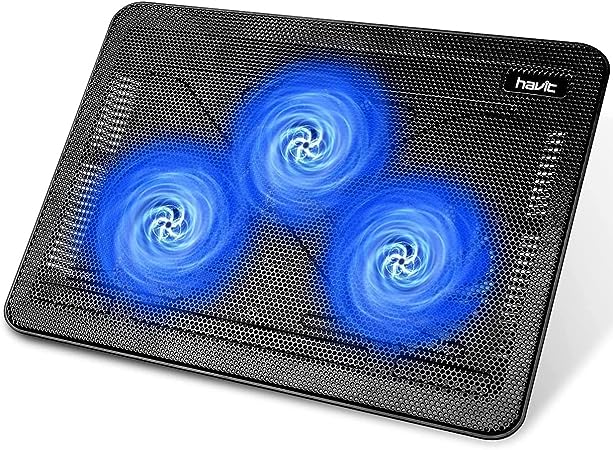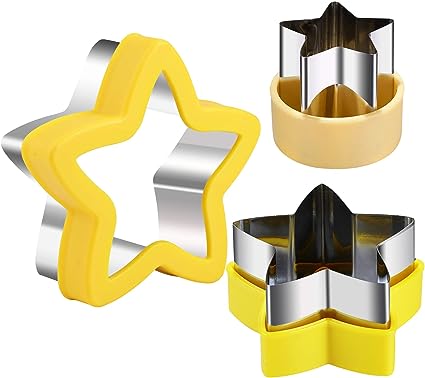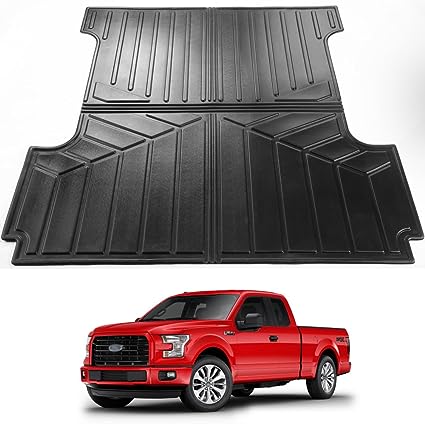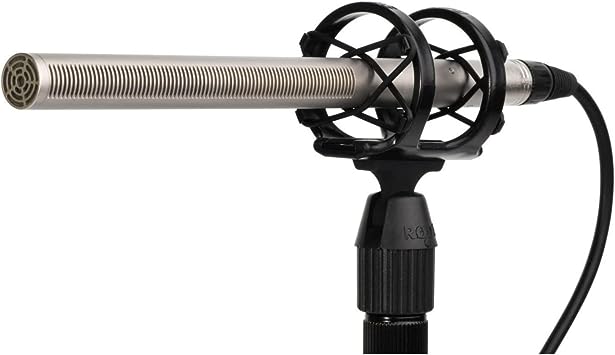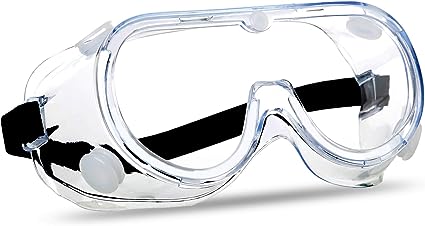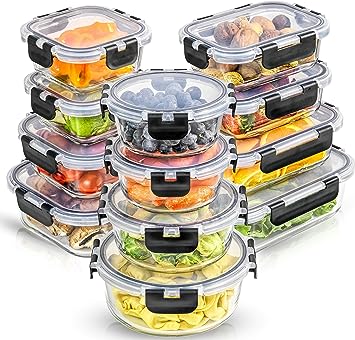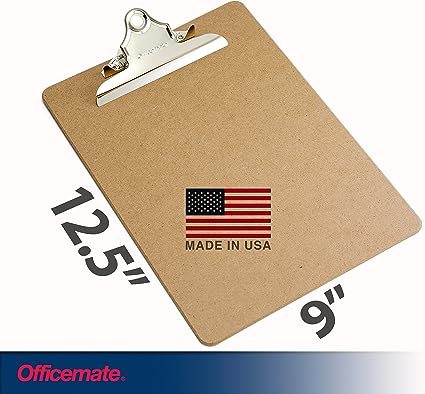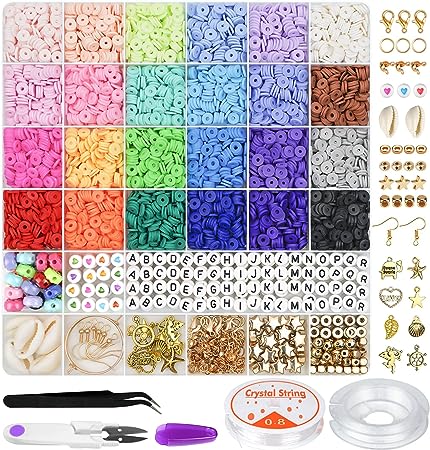What are the benefits of the GT20 IRRI Gator pump?
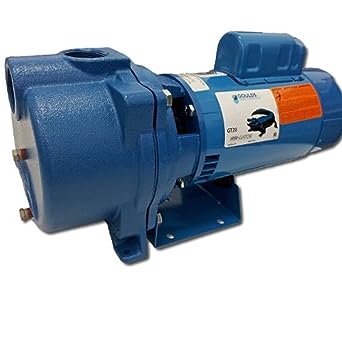
GT20 IRRI Gator pump is a game-changer for anyone in need of a reliable and efficient pumping solution. With its exceptional functionality and superior performance, this pump offers an array of benefits that are hard to come by elsewhere.
Firstly, the GT20 IRRI Gator pump is designed to be self-priming, which means that it can start pumping immediately without the need for manual priming.
This not only saves you time and effort but also ensures that your pumping operations can commence without delay. Additionally, this pump is equipped with a powerful centrifugal force, allowing it to handle a wide range of fluids, including water, chemicals, and sludge. Its robust construction ensures durability and longevity, making it a cost-effective solution in the long run.
Disclosure: As an Amazon Associate, I earn from qualifying purchases. When you click on links on this site and make a purchase, I may receive a small commission at no extra cost to you. Your support helps keep this site running. Thank you!
What Is a Self-Priming Centrifugal Water Pump?
A self-priming centrifugal water pump is an essential tool for various applications, offering convenience and efficiency. These pumps are available in different types, including multi-stage centrifugal pumps and heavy-duty self-priming pumps, each designed to meet specific needs. One key advantage of these pumps is their ability to automatically prime themselves, eliminating the need for manual priming.
This not only saves time and effort but also ensures a continuous water supply. Additionally, self-priming centrifugal pumps are reliable and versatile, making them suitable for a wide range of industries and applications.
Overview of Self-Priming Centrifugal Water Pumps
One of the key features that sets the self-priming centrifugal water pump apart is its ability to create a vacuum within the pump casing, allowing it to draw water in without the need for manual priming.
Different Types of Self-Priming Centrifugal Water Pumps
When it comes to self-priming centrifugal water pumps, there are several different types available on the market today. Each type offers unique features and benefits that cater to specific needs and applications. One notable type is the Heavy Duty Self-Priming Pump, which is designed to handle tough pumping tasks with ease.
This pump is built to withstand demanding conditions and can efficiently move large volumes of water, making it ideal for industrial and commercial applications. Another type worth considering is the Submersible Self-Priming Pump, which is specifically designed for applications where the pump needs to be submerged in water. This type of pump is commonly used in wells, sumps, and other water-filled areas.
Advantages of Self-Priming Centrifugal Water Pumps
Imagine a water pump that not only efficiently moves water but also saves you time and effort. This is where self-priming centrifugal water pumps come into play, offering a range of advantages that make them the go-to choice for many applications.
One of the key advantages of these pumps is their ability to automatically prime themselves. Unlike traditional pumps that require manual priming, self-priming centrifugal water pumps eliminate the need for external priming, saving you valuable time and hassle. This feature is particularly useful in situations where the water source may be located below the pump or where the pump is required to start and stop frequently.
Factors to Consider When Choosing a Self-Priming Centrifugal Water Pump
Flow rate, head pressure, and efficiency are crucial factors to consider when choosing a Self Priming Centrifugal Pump. The flow rate determines how much water the pump can move, ensuring your desired water supply. Meanwhile, head pressure measures the pump's ability to lift water vertically, guaranteeing efficient water distribution.
Lastly, efficiency indicates how effectively the pump converts power into water flow, saving you energy and money. By carefully evaluating these subtopics, you can make an informed decision and choose the right Gator Self-Priming Pump for your needs. Don't settle for anything less than optimal performance and reliability.
Flow Rate
When it comes to selecting a pump, is a crucial factor to consider. This refers to the volume of water that the pump can move within a given time. Whether you need a pump for residential or industrial use, you want one that can deliver a high flow rate. A pump with a higher flow rate ensures that you can quickly fill up large tanks, irrigation systems, or swimming pools. Look for a pump that boasts an impressive flow rate, so you can complete your tasks efficiently and effectively.
Head Pressure
- Transition: Now that we understand the importance of self-priming centrifugal water pumps, let's delve into the factors to consider when choosing the perfect one for your needs.
- Head Pressure: When it comes to selecting a self-priming centrifugal water pump, head pressure is a critical factor that cannot be overlooked. Head pressure refers to the height to which the pump can push water vertically.
- Disappointment and frustration will undoubtedly consume you. Don't let this happen!
Efficiency
Efficiency is a crucial factor to consider when selecting a self-priming centrifugal water pump. This measure determines the pump's ability to convert power into useful work while minimizing energy loss. An efficient pump will not only save you money on operating costs but also contribute to a greener environment. By choosing a pump with high efficiency, you ensure that it maximizes water flow while consuming minimal power.
Look for pumps that have been certified by reputable energy efficiency organizations, as this guarantees their performance and reliability. Investing in an energy-efficient self-priming centrifugal water pump not only benefits your wallet but also demonstrates your commitment to sustainability. Make the environmentally responsible choice and select a pump that prioritizes efficiency.
Top Self-Priming Centrifugal Water Pumps
Looking for the top self-priming centrifugal water pumps? Look no further than the Zoeller Model 57-0001, Flotec FP5172, and Wayne WLS200. These pumps offer unparalleled performance, reliability, and efficiency. With their and, they can handle even the toughest pumping tasks. Whether you need to , , or , these pumps have got you covered. Don't settle for subpar pumps that will leave you frustrated and disappointed.
Zoeller Model 57-0001
Now that we have discussed the factors to consider when choosing a self-priming centrifugal water pump, let's dive into some of the top options available in the market. One such option is the . This self-priming centrifugal pump is known for its exceptional performance and reliability. With its powerful motor and efficient design, the Zoeller Model 57-0001 can effectively handle various water pumping needs.
What sets the Zoeller Model 57-0001 apart from other pumps is its impressive suction power. It can effortlessly prime itself, making it an ideal choice for applications where a reliable water supply is crucial.
Flotec FP5172
When it comes to self-priming centrifugal water pumps, the Flotec FP5172 stands out as a top choice. With its exceptional performance and durability, this pump guarantees to meet all your water pumping needs.
The Flotec FP5172 is designed to deliver consistent water flow and high pressure. Its powerful 1.5-horsepower motor ensures efficient pumping, making it suitable for a variety of applications, including irrigation, sprinkler systems, and household water supply.
What sets the Flotec FP5172 apart is its reliable self-priming feature.
Wayne WLS200
Transition: As we delve into the realm of top self-priming centrifugal water pumps, one model stands out for its exceptional performance and reliability: the Wayne WLS200.
The Wayne WLS200 is a powerhouse that combines efficiency with durability. With its 1.5 horsepower motor, it has the ability to deliver a substantial flow rate of up to 4310 gallons per hour. This means that even the most demanding water transfer or irrigation tasks can be effortlessly handled.
What sets the Wayne WLS200 apart from its competitors is its cast iron construction, which ensures long-lasting performance and resistance to wear and tear.
Other Self-Priming Centrifugal Water Pumps
Looking for? Look no further than the XtremepowerUS 1.5HP, Simer 2925B, and Sta-Rite SRW Series. These pumps are not only but also versatile, making them perfect for various applications. Whether you need an or a, these options have got you covered. With their superior performance and reliability, you can trust that these pumps will meet all your water pumping needs.
XtremepowerUS 1.5HP
XtremepowerUS 1.5HP: The XtremepowerUS 1.5HP is an that will revolutionize your water pumping experience. This is built to withstand the toughest conditions, making it the ideal choice for all your water pumping needs.
With its powerful 1.5-horsepower motor, the XtremepowerUS delivers exceptional performance, allowing you to move water quickly and efficiently. Whether you're pumping water from a well, draining a pool, or irrigating your garden, this pump has got you covered.
But what sets the XtremepowerUS 1.5HP apart from the rest?
Simer 2925B
Looking for a reliable and efficient self-priming centrifugal water pump? Look no further than the Simer 2925B. This powerhouse of a pump delivers exceptional performance and is perfect for a variety of applications.
One of the standout features of the Simer 2925B is its industrial-grade construction. Built to withstand the toughest conditions, this pump is made to last. Whether you need it for irrigation, drainage, or any other water transfer needs, the Simer 2925B will exceed your expectations.
Sta-Rite SRW Series
After exploring the top self-priming centrifugal water pumps, let's now turn our attention to the Sta-Rite SRW Series. Known for its exceptional performance and reliability, the Sta-Rite SRW Series is a true powerhouse in the world of water pumps.
Designed for industrial-grade applications, the Sta-Rite SRW Series delivers unmatched durability and efficiency. With its robust construction and high-quality materials, this pump is built to withstand the toughest conditions and provide long-lasting performance.
What sets the Sta-Rite SRW Series apart from other pumps is its exceptional self-priming capabilities. This means that the pump can automatically remove air from the suction line, allowing for quick and easy priming without the need for manual intervention.
Pros and Cons of Self-Priming Centrifugal Water Pumps
When considering the and of self-priming centrifugal water pumps, it's important to weigh the pros and cons before making a decision. On the plus side, these pumps offer a convenient and efficient solution for applications where priming can be challenging. They can save both time and effort, as they eliminate the need for manual priming. However, it's worth noting that self-priming pumps can be more costly to purchase and maintain compared to traditional centrifugal pumps. Additionally, they may not be suitable for all situations, particularly those requiring extremely high pressure or specialized configurations.
Pros
- Convenience: One of the biggest advantages of self-priming centrifugal water pumps is their ability to prime themselves automatically. This means you don't have to manually fill the pump with water before starting it, saving you valuable time and effort.
- 2. Versatility: These pumps are designed to handle a wide range of applications, from residential water supply to commercial and industrial use.
Cons
- Cons of Self-Priming Centrifugal Water Pumps: While self-priming centrifugal water pumps offer numerous advantages, it is important to consider their drawbacks before making a final decision. One of the main disadvantages is the initial cost of these pumps. Compared to traditional centrifugal pumps, self-priming models tend to be more expensive. This can be a significant factor for those on a tight budget or looking for a more cost-effective option.
- Maintenance Required: Another drawback is the maintenance required. Self-priming pumps often have more complex mechanisms, which can make maintenance and repairs more challenging and time-consuming. Additionally, these pumps may require more frequent maintenance to ensure optimal performance.
Regularly checking the motor of your centrifugal water pump is crucial for its longevity and efficient performance. By conducting routine inspections, you can identify any potential issues early on and prevent costly repairs. Additionally, properly storing the pump when not in use is essential to protect it from damage and extend its lifespan.
Cleaning the pump regularly is also important to remove any debris or buildup that can hinder its functionality. By following these maintenance practices, you can ensure that your pump operates at its optimal capacity, providing you with a reliable and uninterrupted water supply.
Regularly Check the Motor
To ensure the optimal performance and longevity of your self-priming centrifugal water pump, it is crucial to regularly check the motor. The motor is the heart of the pump, and any issues with it can significantly impact its efficiency and reliability. By conducting routine motor checks, you can identify and address potential problems before they escalate into costly repairs or even pump failure.
Start by inspecting the motor's exterior for any signs of damage or wear. Look for cracks, loose connections, or unusual noises. If you notice any abnormalities, it is essential to address them promptly. Additionally, check the motor's cooling system. Ensure that the ventilation openings are clean and unobstructed, allowing for proper airflow.
Properly Store the Pump
After investing in a, it's crucial to take proper care of it to ensure its longevity and optimal performance. One essential aspect of maintenance is properly storing the pump when it's not in use. Neglecting this step can lead to damage and reduce the pump's efficiency, resulting in costly repairs or replacement.
To properly store the pump, start by finding a clean and dry storage area where it won't be exposed to extreme temperatures or moisture. It's important to protect the pump from dust, debris, and other contaminants that can clog or damage its components. Covering the pump with a durable, waterproof tarp can provide an additional layer of protection.
Clean the Pump Regularly
To ensure the longevity and efficiency of your, regularly cleaning the pump is essential. Neglecting this maintenance task can lead to clogs, decreased performance, and even pump failure.
Start by disconnecting the pump from any power source that may have accumulated on the exterior. Use a soft cloth or brush to gently wipe away dirt, dust, or grime.
Next, open the pump housing and inspect the impeller and volute for any signs of build-up or blockage. Use a small brush or toothbrush to carefully remove any accumulated residue.
Troubleshooting Issues with Self-Priming Centrifugal Water Pumps
When encountering issues with you, it's important to troubleshoot common problems before seeking assistance. Start by checking the power source and ensuring proper electrical connections. If the pump is not priming, make sure the suction line is free from any debris or clogs. Inspect the impeller for damage or wear, as it can affect the pump's performance. Regular maintenance is crucial to prevent issues and prolong the lifespan of your pump.
Troubleshooting Common Issues
Experiencing issues with you can be frustrating and time-consuming. However, troubleshooting common problems can help you avoid costly repairs or replacements. One common issue is low or no water flow. If you notice this problem, check if the and ensure that the. Inadequate suction can also cause this problem. Another issue to watch out for is overheating. If your pump is constantly running hot, it could be due to.
Contacting the Manufacturer for Assistance
If you have followed all the troubleshooting steps and are still experiencing issues with your self-priming centrifugal water pump, it may be time to reach out to the manufacturer for assistance. Contacting the manufacturer can provide you with expert guidance and support to resolve any problems you may be facing.
When you contact the manufacturer, make sure to have all the necessary information on hand. This includes the model number, serial number, and any other relevant details about your pump. Providing this information will help the manufacturer's customer service team identify the specific pump you have and provide accurate assistance.
The manufacturer's customer service team has extensive knowledge and experience with their products.
Leaking pump
If you find that your self-priming centrifugal water pump is leaking, it is crucial to address the issue promptly to prevent further damage and potential safety hazards. A leaking pump can lead to water damage, reduced pump performance, and even electrical malfunctions.
To troubleshoot this issue, start by checking the pump's connections and seals for any signs of wear or damage. Tighten loose connections and replace faulty seals as necessary. Additionally, inspect the pump's housing for cracks or corrosion that may be causing the leak. If you are unable to identify and fix the problem on your own, don't hesitate to contact the manufacturer for assistance.
Summary of the Benefits of Self-Priming Centrifugal Water Pumps
Self-priming centrifugal water pumps offer a multitude of benefits that make them an excellent choice for various applications. Firstly, their ability to automatically prime and re-prime without the need for manual intervention saves time and effort. This feature is especially advantageous in situations where the pump is located far from a water source or in remote areas.
Additionally, their robust construction and durable materials ensure longevity and resistance to wear and tear, making them a reliable investment. These pumps also possess the capability to handle high volumes of water, making them ideal for applications such as agricultural irrigation and industrial water transfer. Furthermore, their efficient performance and high flow rates contribute to enhanced productivity and reduced downtime.
Key Takeaways
After understanding the benefits and troubleshooting issues of self-priming centrifugal water pumps, it is clear that these pumps are a reliable and efficient solution for various applications.
Firstly, saving time and effort. By automatically removing air and consistently maintaining prime, these pumps ensure a smooth and uninterrupted flow of water.
Secondly, these pumps, make them suitable for a wide range of applications including irrigation, construction, and industrial use. Their ability to handle solids and debris without clogging ensures uninterrupted operation even in challenging environments.
Overall Assessment
In conclusion, it is clear that self-priming centrifugal water pumps are the superior choice for any water pumping needs. Their unique design and advanced features provide numerous benefits that make them a valuable investment.
One of the key advantages of these pumps is their ability to prime themselves, eliminating the need for manual priming and saving valuable time and effort. This feature alone sets them apart from other types of pumps on the market. Additionally, their durable construction ensures long-lasting performance, even in the most demanding conditions.
Furthermore, self-priming centrifugal water pumps are highly efficient, delivering consistent water pressure and flow rates. This makes them ideal for a wide range of applications, including agricultural irrigation, residential water supply, and commercial use.
Conclusion
In conclusion, the GT20 IRRI Gator pump offers a multitude of benefits that make it a top choice for all your water pumping needs. Its self-priming capability ensures easy and hassle-free operation, saving you time and effort. With its heavy-duty construction, the pump is built to withstand the toughest conditions, ensuring durability and longevity.
The high-pressure performance of the GT20 IRRI Gator pump allows for efficient water transfer and irrigation, making it a valuable asset for agricultural applications. Its reliable and efficient operation guarantees maximum productivity, giving you peace of mind.
In addition, the GT20 IRRI Gator pump is equipped with advanced features that make maintenance and troubleshooting a breeze. Its user-friendly design ensures ease of use, even for those without prior experience. With proper maintenance, this pump will provide you with years of reliable service.
You May Also Read:
PAPIFEED Smart Automatic Cat Food Dispenser
Mini Projector for iPhone
Wyze Air Purifier with Formaldehyde Filter
Make Your Business Online By The Best No—Code & No—Plugin Solution In The Market.
30 Day Money-Back Guarantee
Say goodbye to your low online sales rate!
Are self-priming centrifugal water pumps environmentally friendly?
Choosing an energy-efficient self-priming centrifugal water pump can contribute to a greener environment by minimizing energy consumption.
Why should I choose a self-priming centrifugal water pump like the GT20 IRRI Gator pump?
The GT20 IRRI Gator pump offers self-priming capabilities, durability, high-pressure performance, and ease of maintenance. It's suitable for various water pumping needs, making it a valuable investment.
What should I do if I encounter issues with my self-priming centrifugal water pump?
If you face problems like low water flow or overheating, follow troubleshooting steps outlined in the manual. If issues persist, contact the manufacturer for expert assistance.
How should I maintain my self-priming centrifugal water pump?
Regular maintenance is crucial. Check the motor, store the pump properly when not in use, and clean it regularly to remove debris. For detailed maintenance instructions, consult the manufacturer's guidelines.
Can you recommend some top self-priming centrifugal water pumps?
Some top options include the Zoeller Model 57-0001, Flotec FP5172, Wayne WLS200, XtremepowerUS 1.5HP, Simer 2925B, and Sta-Rite SRW Series.
What factors should I consider when choosing a self-priming centrifugal water pump?
When selecting a self-priming centrifugal water pump, consider factors like: Flow rate: The volume of water the pump can move within a given time. Head pressure: The pump's ability to lift water vertically. Efficiency: How effectively the pump converts power into water flow, saving energy and costs.
